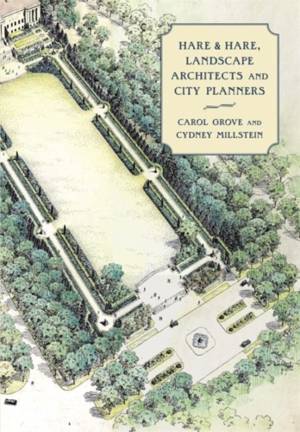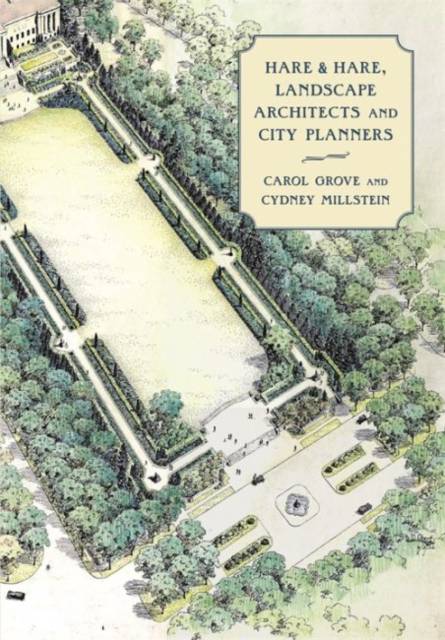
- Afhalen na 1 uur in een winkel met voorraad
- Gratis thuislevering in België vanaf € 30
- Ruim aanbod met 7 miljoen producten
- Afhalen na 1 uur in een winkel met voorraad
- Gratis thuislevering in België vanaf € 30
- Ruim aanbod met 7 miljoen producten
Omschrijving
When Sidney J. Hare (1860-1938) and S. Herbert Hare (1888-1960) launched their Kansas City firm in 1910, they founded what would become the most influential landscape architecture and planning practice in the Midwest. Over time, their work became increasingly far-ranging, in both its geographical scope and its project types. Between 1924 and 1955, Hare & Hare commissions included fifty-four cemeteries in fifteen states; numerous city and state parks (seventeen in Missouri alone); more than fifteen subdivisions in Salt Lake City; the Denver neighborhood of Belcaro Park; the picturesque grounds of the Christian Science Sanatorium in Chestnut Hill, Massachusetts; and the University of Texas at Austin among fifty-one college and university campuses.
In Hare & Hare: Landscape Architects and City Planners Carol Grove and Cydney Millstein document the extraordinary achievements of this little-known firm and weave them into a narrative that spans from the birth of the late nineteenth-century "modern cemetery movement" to midcentury modernism. Through the figures of Sidney, a "homespun" amateur geologist who built a rustic family retreat called Harecliff, and his son Herbert, an urbane Harvard-trained landscape architect who traveled Europe and lived in a modern apartment building, Grove and Millstein chronicle the growth of the field from its amorphous Victorian beginnings to its coalescence as a profession during the first half of the twentieth century. Hare & Hare provides a unique and valuable parallel to studies of prominent East and West Coast landscape architecture firms--one that expands the reader's understanding of the history of American landscape architecture practice.Specificaties
Betrokkenen
- Auteur(s):
- Uitgeverij:
Inhoud
- Aantal bladzijden:
- 256
- Taal:
- Engels
- Reeks:
- Reeksnummer:
- nr. 2
Eigenschappen
- Productcode (EAN):
- 9780820354811
- Verschijningsdatum:
- 1/04/2019
- Uitvoering:
- Hardcover
- Formaat:
- Genaaid
- Afmetingen:
- 229 mm x 259 mm
- Gewicht:
- 907 g

Alleen bij Standaard Boekhandel
Beoordelingen
We publiceren alleen reviews die voldoen aan de voorwaarden voor reviews. Bekijk onze voorwaarden voor reviews.











